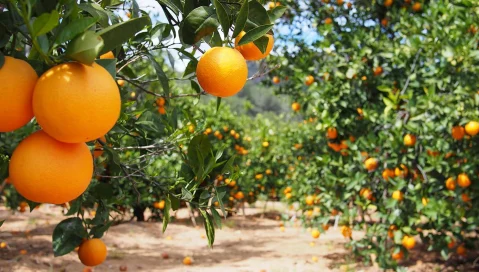This Is the Time To Embrace Software for the Fresh Produce Industry
This Is the Time To Embrace Software for the Fresh Produce Industry
This Is the Time To Embrace Software for the Fresh Produce Industry
1 Apr 2021
Aptean Staff Writer
2020 was certainly an incredibly hectic and challenging year for the fresh produce industry. Well thought out plans for growth and improvement had to be set aside, while companies had to focus fully on adapting to a new reality and simply surviving. Here we are going to discuss why now is the ideal time to help your business grow using ERP, looking at what companies experienced in 2020 and the possibility that this disruption will continue for some time.
Can the Right Software Reduce the Burden of the Pandemic?
We all know that hindsight is always easy to talk about, so to say that any company could have been fully prepared for a scenario like COVID-19 is not true. However, the pandemic posed a number of obstacles that limited fresh produce companies without integrated systems such as ERP, while those with such systems could negotiate more easily.
Adapting to changing demand
As we know, consumer demand increased significantly in the early days of lockdown, so retailers and the fresh produce industry struggled to keep up with this large increase in demand. But this problem was more than a simple problem of increasing demand - the entire production and sales of many companies were changing rapidly for two main reasons:
Demand shifted significantly from hospitality to retail, so companies that depended on supplying restaurants had to adapt.
Supermarkets adjusted their assortment to put abundance before choice.
Taking the right steps to respond to such unexpected changes has been difficult for all involved, but systems specifically developed for the food industry are built to handle such anomalies. They enable companies to act decisively with confidence.
The companies that had the right solution in place at the beginning of the pandemic benefited:
Features for Tracking Party Administrations
These features are built to track individual parties throughout their journey. The software solution allocates costs to a specific lot, so companies can trace all costs back to their original lot.
During the pandemic, they helped to better deal with the change in demand, which in many cases forced companies to cater to completely different markets and customers.
Data Interpretation
Solutions such as food-specific ERP provide a much more complete picture of what is going on in an fresh produce business, because historical data is not just floating around somewhere, but it is updated in real time. This provides greater insight for companies reacting to changes in demand, allowing them to understand the change in sales much faster and allowing them to see which products have the best and lowest margins.
Management of sheds and packing plants
The impact of the pandemic on the practical operation of packing plants and sheds was significant, again because changes had to take place at very short notice:
Changes in demand caused major changes in daily production schedules
New COVID safety regulations meant that in many cases additional training, hygiene protocols and remote working had to be implemented
The strengths of ERP are as much about managing people as they are about managing resources and budgets:
Forecasting Features
Improved forecasting enabled companies to quickly adapt to a new model, in order to take quick action on changes to their warehouse and/or warehouse. Sales forecasts can be used to form production forecasts, which are then translated into detailed, personalized daily production summaries for staff.
Pallet Management Features
These provide real-time data on all pallets in a warehouse, meaning visibility over inventory and quality - something more important than ever during the pandemic. ERP also eliminates paperwork and provides access to inventory information on one screen.
Mobile Solutions
Adapting to a more distant way of working has been difficult for everyone, including the staff of fresh produce companies. The ability of ERP to integrate with mobile technology extends all core functions to each employee and provides easy access to their individualized production summaries.
Off-site access
A combination of paper record keeping, data in silos and limited floor access for some employees during lockdown rendered the local systems of many fresh produce companies obsolete. Staff who had to work from home and needed access to vital information to communicate with customers and suppliers were being let down by outdated technology that was not appropriate for a modern fresh produce business.
Cloud technology is the way many companies are choosing to move forward. The best ERP systems consist of a mix of local and cloud software that optimizes the experience for on-site employees while extending all data to all employees, wherever they are in the world.
In addition, ERP is able to integrate "grower portals," allowing suppliers and customers to easily share data with each other. This makes it much easier for growers to track their supply and for customers to plan their purchases on a daily basis.
Enabling Improvement
If your company was already considering investing in a food-specific ERP system, we are currently only seeing more of how important these solutions are in such a changing world. Aptean Food & Beverage ERP gives you more confidence in your short-term decisions, but its real value is as a facilitator of business transformation.
All the features that help fresh produce companies get through the pandemic - from tracking batch records to business intelligence, from forecasting to mobile integration - are features that enable steady growth and improvement even in normal times. Aptean's software helps your business be even more successful. Contact us today to find out how.
Sind Sie bereit, Ihr Unternehmen grundlegend zu verändern?
Wir bieten Ihnen die spezialisierten ERP-Lösungen, die Sie für die Herausforderungen Ihrer Branche benötigen.



